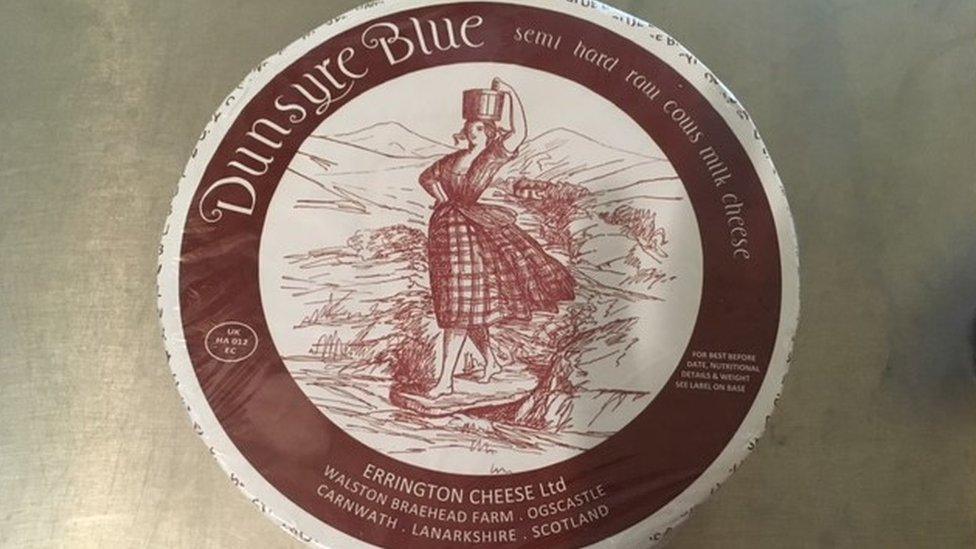Blue cheese 'was source' of E. coli outbreak
- Published
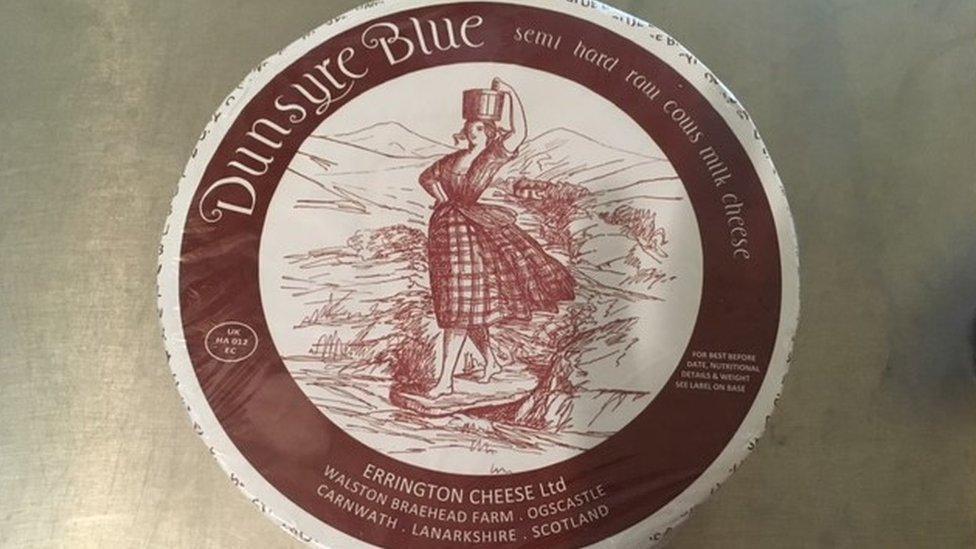
A report into an outbreak of E. coli O157 in which a three-year-old child died has concluded Dunsyre Blue cheese was the source.
The report was published by Health Protection Scotland, external on behalf of its Incident Management Team.
It investigated the outbreak in which a total of 26 cases of the same strain of E. coli O157 were identified between July and mid-September 2016.
Seventeen people required hospital treatment as a result of the outbreak.
The IMT concluded that the source of the outbreak was consumption of an unpasteurised cows' milk cheese.
The outbreak led to further investigations of cheese produced by South Lanarkshire manufacturer Errington Cheese and of the production processes in place at the time.
Dr Alison Smith-Palmer, chair of the IMT, said: "This report has been produced on behalf of the multi-agency Incident Management Team and is approved by all team members.
"The report describes the detailed epidemiological, microbiological, food and environmental investigations and concludes that Dunsyre Blue cheese was the source of this outbreak.
"It also presents lessons learned and recommendations for improvement."

What is E.coli?
E.coli is a type of bacterium commonly found in the intestines of humans, livestock and other animals, and is excreted in faeces.
The O157 strain is a leading cause of food-borne illness and can be particularly dangerous.
The bacterium is generally spread by contaminated food and water but also can be passed among humans.
In people with weak immune systems, particularly young children and the elderly, the infection can cause serious kidney damage, blindness, paralysis and sometimes death.
Symptoms can include abdominal cramps and diarrhoea that may be bloody and people may also experience fever and vomiting.

The report concludes that: "Potentially pathogenic E. coli were able to enter and survive the cheese production process at the food business.
"Positive results were obtained for cheese produced over a period of four months, indicating a systematic potential for Escherichia coli (STEC) to enter the process and contaminate final products."
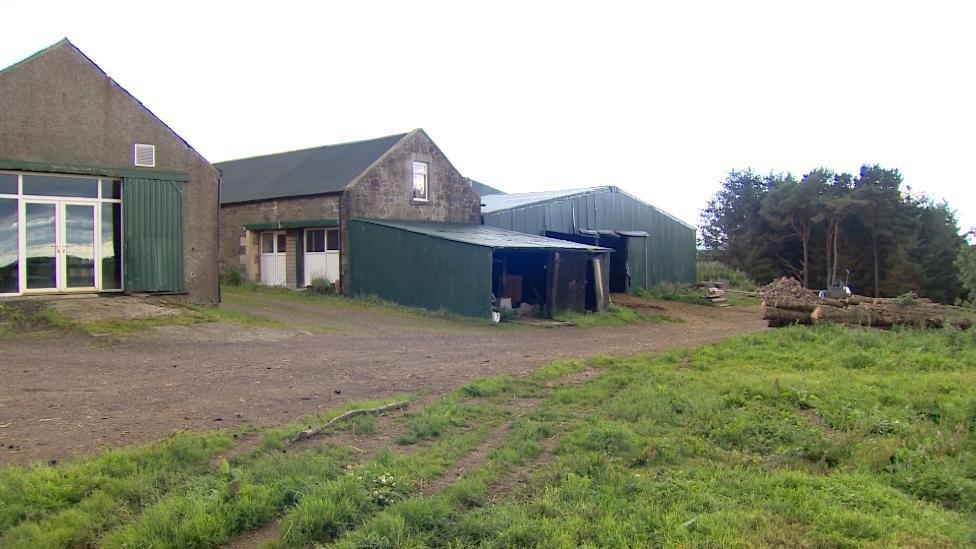
Errington Cheese, which is based at Carnwrath, produces Dunsyre Blue cheese
It added: "Extensive investigations concluded that the source of the outbreak was the consumption of Dunsyre Blue.
"This conclusion was based on evidence from epidemiological and food chain investigations and supported by microbiological evidence and deficiencies identified in the procedures for the monitoring and control of STEC at the food business."
Subsequently, another cheese from Errington Cheese, Corra Linn, was also found to contain potentially pathogenic E. coli.
Food Standards Scotland chief executive Geoff Ogle said: "Food Standards Scotland is satisfied that the evidence and conclusions presented in this report fully support and justify the decisions that we took to protect consumers.
"All of our decisions and actions were taken with the sole aim of protecting public health.
"This report should allay any concerns with regards to our decisions and assure others that our actions were evidence based. That will always be the case."
A statement from Errington Cheese said: "On an initial reading, all of our concerns regarding the investigation into our cheese and the outbreak of illness remain.
"We believe that more detailed investigations into the cause of the outbreak are needed. This is particularly in relation to those cases where HPS were unable to find any direct link to Dunsyre Blue."
It added: "There is no microbiological evidence that Dunsyre Blue caused the outbreak - all they have concluded is that raw milk cheese carries a small risk of STEC which is already well recorded in scientific literature; there has been no highly pathogenic STEC found in any of our products, nor anything found linking our cheese to the outbreak. This is fact."
The council's action came a week after the Carnwath-based producer won the latest round of a court battle against the sales ban.
The Carnwath-based producer had won a court battle in January to start selling the product again.
However, within a week South Lanarkshire Council had seized a batch of cheese, seeking court approval to have it destroyed.
The company re-started cheese production this month after the council established that relevant controls were in place.
- Published3 February 2017
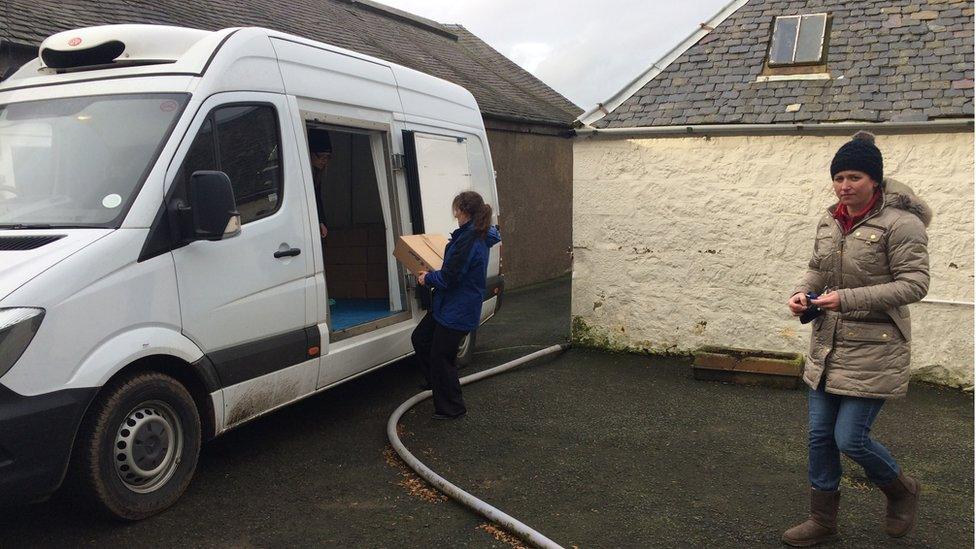
- Published27 January 2017
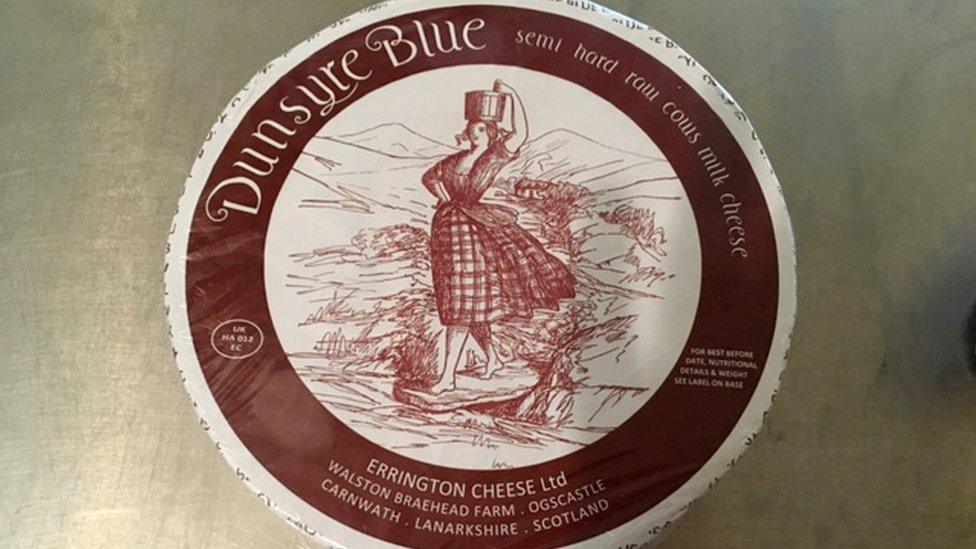
- Published29 July 2016
